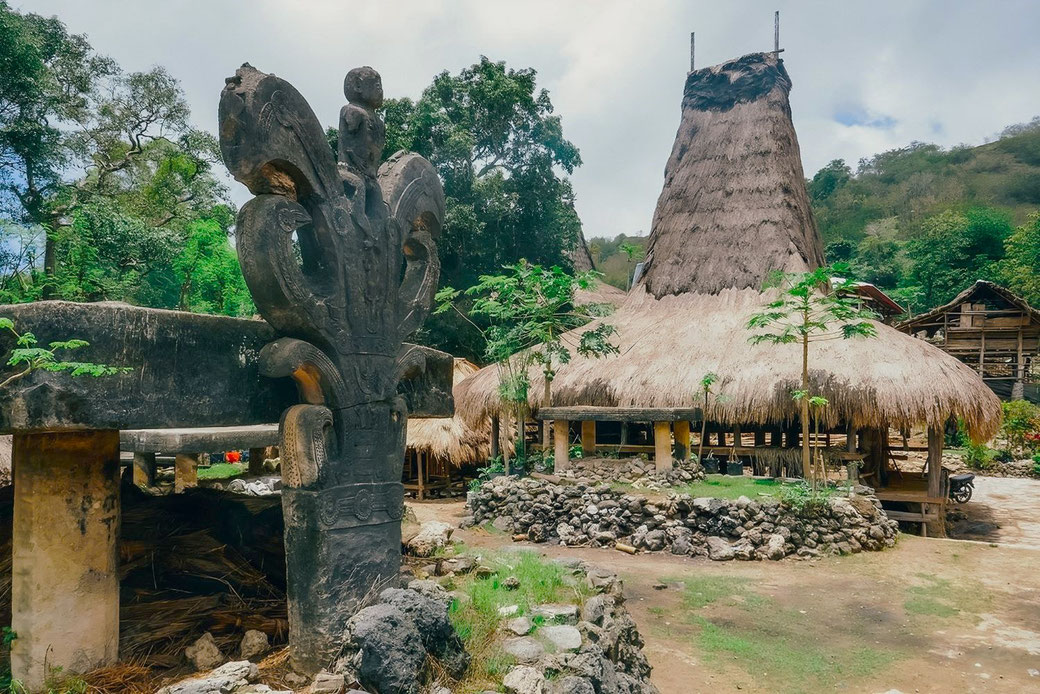sumba Culture
About Sumba
The Island of Sumba, located in the southeast of the Indonesian archipelago, is a hidden gem that is rapidly gaining popularity among both domestic and international visitors. Within just an hour's flight from Denpasar, Bali, travelers can find themselves in a land of breathtaking contrasts. Sumba’s unique geography offers a stunning variety of landscapes, including expansive savannas, pristine white-sand beaches, cascading waterfalls, and dense jungle-covered mountains. Despite its growing appeal, Sumba remains sparsely populated, allowing visitors to experience its unspoiled natural beauty and deeply rooted traditions.
Sumba's Unique Traditions
One of the most renowned cultural events on the island is the Pasola Festival, a vibrant and exhilarating display of Sumba’s rich heritage. This ancient ritual, deeply embedded in the island’s traditions, involves skilled horsemen engaging in mock battles while adorned in handwoven ikat fabrics. The Pasola is not merely a spectacle; it is a ritual to honor the ancestors and ensure a bountiful harvest, reflecting the islanders' close relationship with nature and the spiritual world.
Marriage and Adat Traditions
Sumba’s social fabric is woven with complex traditions, particularly when it comes to marriage. In Sumba, the process of marriage is not just a union of two individuals but a binding of families and their ancestral spirits. When a man seeks to marry, he must perform a series of elaborate ceremonies, offering a dowry in the form of livestock such as horses, cows, or buffaloes. This dowry, often consisting of dozens of animals, symbolizes the groom's family status and the importance they place on the union. In return, the bride's family reciprocates with gifts that include pigs and the finest ikat textiles, showcasing the island’s celebrated weaving skills.
Funerary Customs and Ancestor Worship
Death in Sumba is as ceremonious as life, reflecting the islanders' belief in the enduring presence of their ancestors. When a person passes away, their final journey is marked by grand ceremonies, during which buffaloes and horses are sacrificed to accompany the deceased to the afterlife. These funerals are communal events, with the entire village participating in the transportation of massive gravestones, some weighing several tons, to the burial site. These stones are often intricately carved and transported from distant locations, a feat requiring immense physical strength and coordination.

Social Hierarchies and Animistic Beliefs
Sumba's social structure is deeply hierarchical, with every aspect of life—education, occupation, and marriage—being influenced by one’s standing within the community. In the more remote interior regions, many Sumbanese continue to practice Marapu, an animistic belief system that venerates ancestors and nature. Marapu rituals involve offerings and ceremonies to honor the spirits, which are believed to inhabit the natural world. This spiritual connection is further reflected in the island's folklore, rich with tales and myths that explain natural phenomena through the lens of Marapu beliefs.
The Raja System and Modern-Day Slavery
The island is also home to a unique system of small kingdoms, or Kampong Raja, where noble families, or Rajas, hold significant power. These families control vast tracts of land and occupy all the key positions in local governance. Their influence extends to the lives of those in their service, many of whom are bound in a form of modern-day slavery.

These dependents live and work for the Raja’s family, with their entire livelihood determined by the Raja's will.
Born into this status, they often have little hope of escape, leading many younger Sumbanese to flee to other parts of Indonesia, such as Bali, in search of freedom and opportunity.
Conclusion
Sumba is a land where tradition and modernity coexist in fascinating ways. Its untouched landscapes and deep cultural roots make it a must-visit for those seeking an authentic Indonesian experience.
Whether drawn by the vibrant festivals, the rich traditions, or the stunning natural beauty, visitors to Sumba are sure to leave with a deeper appreciation for this unique island and its resilient people.



